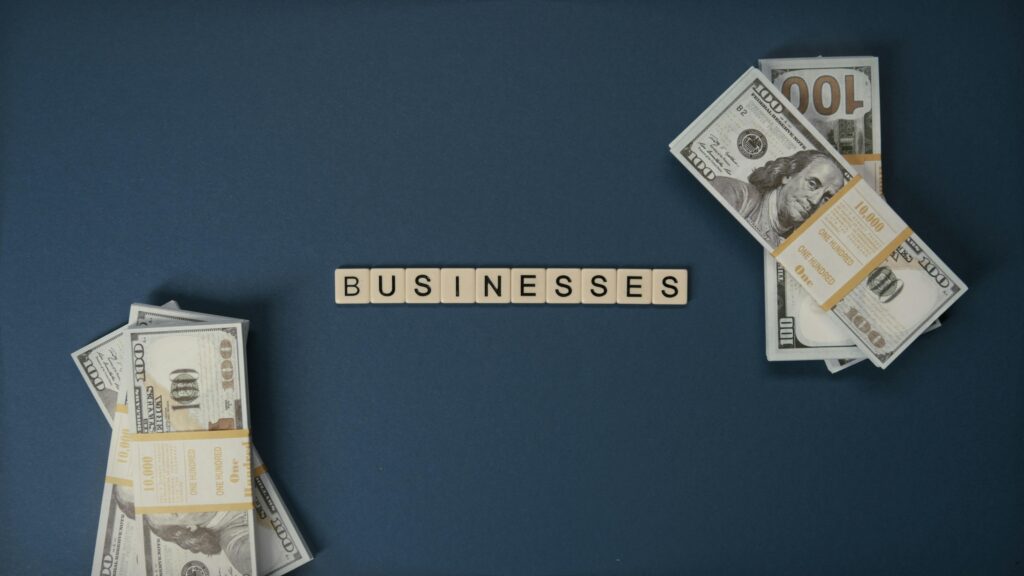The Ultimate Guide to the Best Bonds to Invest in 2025
Table of Contents
1. Introduction to Bond Investing in 2025
As we approach 2025, bond markets present both opportunities and challenges for investors. With the Federal Reserve’s monetary policy in flux and economic uncertainty lingering, understanding how to navigate the bond market is more critical than ever. This comprehensive 5,000+ word guide will provide you with everything you need to know about investing in bonds in 2025.
For those new to fixed income investing, we recommend starting with our foundational guide What Are Bonds and How Do They Work? Before continuing.
2. Why Bonds Should Be Part of Your 2025 Portfolio
The Case for Bonds in the Current Economic Climate
- Interest rate outlook and Fed policy projections
- Inflation expectations for 2025
- Recession probability and bond performance
Key Benefits of Bond Investing
- Capital Preservation: Unlike stocks, bonds provide principal protection
- Predictable Income: Fixed interest payments (coupons)
- Portfolio Diversification: Low correlation with equities
- Tax Advantages: Especially with municipal bonds
According to Vanguard’s 2025 Market Outlook, bonds are expected to offer more attractive yields than we’ve seen in over a decade.
3. Understanding Bond Market Fundamentals
Key Bond Concepts Every Investor Should Know
- Yield to Maturity (YTM) vs. Current Yield
- Duration, Risk, and Interest Rate Sensitivity
- Credit Ratings and Default Risk
- Callable vs. Non-Callable Bonds
Visual: Bond Price/Yield Relationship Chart

4. Best Government Bonds to Buy in 2025
Comprehensive Analysis of Government Debt Securities
| Bond Type | Expected Yield | Duration | Risk Profile | Best For |
|---|---|---|---|---|
| 3-Month T-Bills | 4.2-5.0% | 0.25 years | Lowest | Cash equivalents |
| 2-Year T-Notes | 4.5-5.2% | 2 years | Very Low | Short-term investors |
| 10-Year T-Bonds | 4.0-4.8% | 10 years | Low | Balanced portfolios |
| 30-Year T-Bonds | 4.2-5.0% | 30 years | Low-Medium | Long-term investors |
| 10-Year TIPS | 2.1% + CPI | 10 years | Low | Inflation protection |
| AAA Muni Bonds | 3.5-4.5% | Varies | Low | High-tax investors |
Data sourced from Bloomberg Treasury Market Data.
5. Top Corporate Bonds for 2025
Detailed Analysis of Corporate Debt Market
Blue Chip Corporate Bonds:
- Microsoft Corp. (MSFT) 3.45% 2035: Yield 5.1%
- Johnson & Johnson (JNJ) 2.95% 2030: Yield 4.8%
- Apple Inc. (AAPL) 4.65% 2053: Yield 5.3%
Investment Grade Corporate Bond ETFs:
- iBoxx $ Investment Grade Corp Bond ETF from iShares (LQD)
- Vanguard Intermediate-Term Corp Bond ETF (VCIT)
For current corporate bond offerings, check Fidelity’s Bond Search Tool.
6. International Bonds for Diversification
Opportunities in Global Fixed Income Markets
- European Corporate Bonds
- Emerging Market Debt
- Currency-Hedged International Bond Funds
Warning: Foreign bonds carry additional currency and political risks – see IMF Global Debt Report.

7. Bond ETFs vs. Individual Bonds: 2,000 Word Analysis
Deep Dive into the Pros and Cons
Advantages of Bond ETFs:
- Instant diversification
- Lower minimum investments
- Liquidity benefits
Disadvantages of Bond ETFs:
- No maturity date
- Interest rate sensitivity
- Potential premium/discount to NAV
Case Study: Performance of BND vs. Treasury Ladder During Rate Hikes
8. Best Bond Funds for Retirement Portfolios
Target Date Fund Alternatives
- Vanguard Target Retirement Income Fund (VTINX)
- Fidelity Freedom® Income Fund (FFFAX)
- Schwab Treasury Inflation Protected Securities Index Fund (SWRSX)
Retirement planning resources: SEC Guide to Target Date Funds.
9. Where to Invest Money for Good Returns
Complete Brokerage Comparison
| Platform | Best For | Minimum | Bond Selection |
|---|---|---|---|
| TreasuryDirect.gov | Government Bonds | $100 | All U.S. Treasuries |
| Fidelity | Corporate Bonds | $1,000 | 20,000+ bonds |
| Schwab | Bond ETFs | $0 | 200+ fixed income ETFs |
| Vanguard | Mutual Funds | $3,000 | Low-cost bond funds |
10. Risks of Bond Investing in 2025
Comprehensive Risk Analysis
- Interest Rate Risk (Duration Analysis)
- Credit Risk (Default Probability)
- Reinvestment Risk
- Inflation Risk
- Liquidity Risk
Visual: Historical Bond Default Rates Chart
11. Tax Considerations for Bond Investors
State-by-State Tax Guide
- Best Tax-Free Bonds by State
- AMT Considerations
- Tax-Loss Harvesting Strategies
Reference: IRS Tax-Exempt Bond Rules.

12. How to Build a Bond Ladder in 2025
Step-by-Step Ladder Construction
- Determine Investment Horizon
- Select Bond Types
- Allocate Across Maturities
- Reinvestment Strategy
*Example: $100,000 5-Year Treasury Ladder*
Conclusion: Best Bonds to Invest in 2025 – Final Recommendations
As we look ahead to 2025, bonds remain a critical component of a well-balanced investment portfolio. Whether you’re seeking stable income, inflation protection, or capital preservation, the right bond strategy can help you achieve your financial goals while minimizing risk.
Key Takeaways for Investing in the Best Bonds for 2025
✔ Government Bonds (Treasuries, TIPS, Munis) – Ideal for safety and tax efficiency
✔ Corporate Bonds (AAA-Rated & Investment Grade) – Offer higher yields with moderate risk
✔ Bond ETFs & Mutual Funds – Provide diversification and liquidity (but beware of interest rate risks)
✔ International Bonds – Can enhance global diversification (though with added currency risk)
✔ Bond Ladders – A smart way to manage interest rate risk while securing steady returns
Final Action Steps
- Assess your risk tolerance – Are you prioritizing safety or yield?
- Diversify across bond types – Mix government, corporate, and inflation-protected bonds.
- Consider tax implications – Municipal bonds can be excellent for high-income investors.
- Stay informed – Monitor Fed policy and economic trends that impact bond yields.
13. FAQs: Answering Your Bond Investment Questions
Q: Should I buy bonds now or wait for higher rates?
A: Current analysis suggests…
Q: What percentage of my portfolio should be in bonds?
A: The traditional 60/40 rule…
Q: Are zero-coupon bonds a good investment?
A: In certain tax situations…
